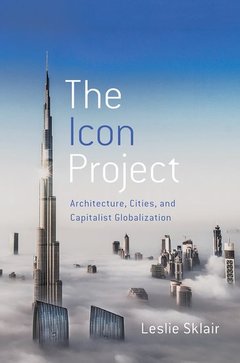Description
The Icon Project
Architecture, Cities, and Capitalist Globalization
Author: Sklair Leslie
Language: English
Subject for The Icon Project:
The Icon Project
Publication date: 08-2019
346 p. · 23.1x15.5 cm · Paperback
Out of Print
Publication date: 08-2019
346 p. · 23.1x15.5 cm · Paperback
Out of Print
The Icon Project
Publication date: 04-2017
352 p. · 23.6x15.7 cm · Hardback
Out of Print
Publication date: 04-2017
352 p. · 23.6x15.7 cm · Hardback
Out of Print
Description
/li>Biography
/li>
In the last quarter century, a new form of iconic architecture has appeared throughout the world's major cities. Typically designed by globe-trotting "starchitects" or by a few large transnational architectural firms, these projects are almost always funded by the private sector in the service of private interests. Whereas in the past monumental architecture often had a strong public component, the urban ziggurats of today are emblems and conduits of capitalist globalization. In The Icon Project, Leslie Sklair focuses on ways in which capitalist globalization is produced and represented all over the world, especially in globalizing cities. Sklair traces how the iconic buildings of our era -- elaborate shopping malls, spectacular museums, and vast urban megaprojects -- constitute the triumphal "Icon Project" of contemporary global capitalism, promoting increasing inequality and hyperconsumerism. Two of the most significant strains of iconic architecture -- unique icons recognized as works of art, designed by the likes of Gehry, Foster, Koolhaas, and Hadid, as well as successful, derivative icons that copy elements of the starchitects' work -- speak to the centrality of hyperconsumerism within contemporary capitalism. Along with explaining how the architecture industry organizes the social production and marketing of iconic structures, he also shows how corporations increasingly dominate the built environment and promote the trend towards globalizing, consumerist cities. The Icon Project, Sklair argues, is a weapon in the struggle to solidify capitalist hegemony as well as reinforce transnational capitalist control of where we live, what we consume, and how we think.
Leslie Sklair is Professor Emeritus of Sociology at the London School of Economics. He is also the author of The Transnational Capitalist Class and Globalization: Capitalism and its Alternatives.
© 2024 LAVOISIER S.A.S.




